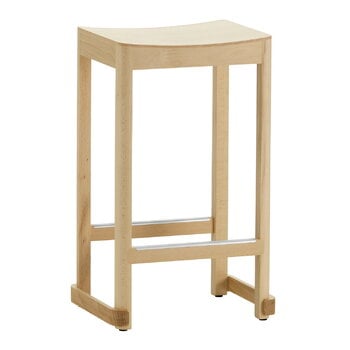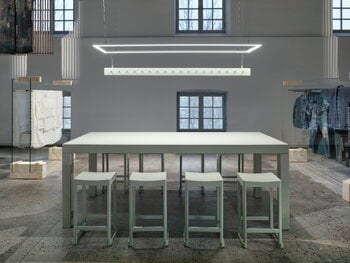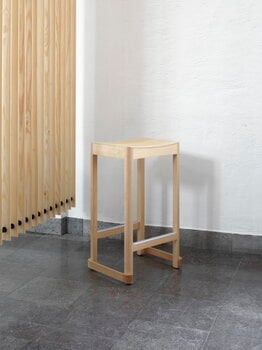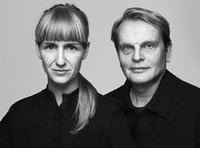The Atelier bar stool by Artek has a balanced appearance and lightweight construction that make it well suited for restaurants, cafés as well as private use. The softly bent seat and connecting bars between the front legs give the bar stool an easy, laid-back spirit, and the footrests have been reinforced by aluminium inlays for extra stability.
The Atelier collection was born in 2018 when the Swedish TAF Studio was commissioned to design the interior for a new restaurant at Stockholm’s Nationalmuseum – the chair got its name because the dining hall resembles an artist’s atelier. Finnish Artek was chosen as the manufacturer because of its high quality and long expertise with wood. The Atelier chairs are manufactured in Italy from locally sourced species of wood.










